‘That’s not my grandma, that’s my mom’
In skip-generation households, grandparents are quietly stepping up to parent all over again
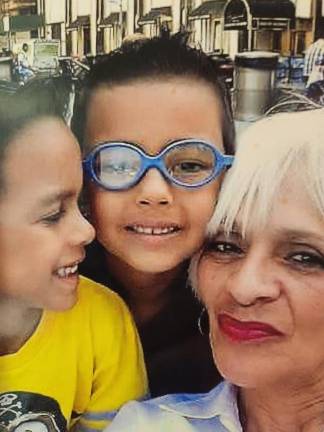
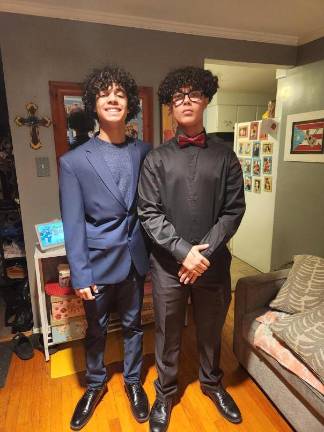
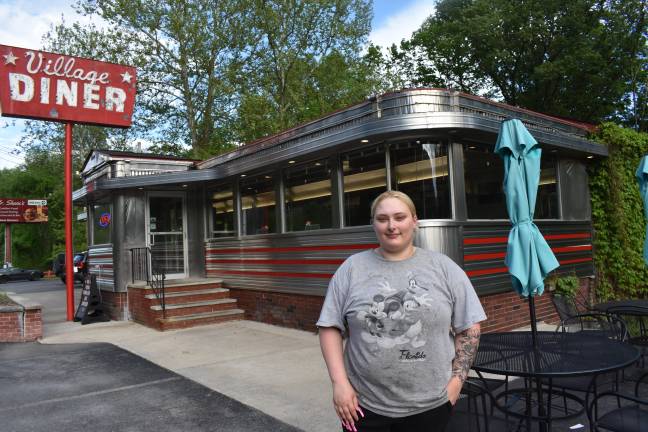
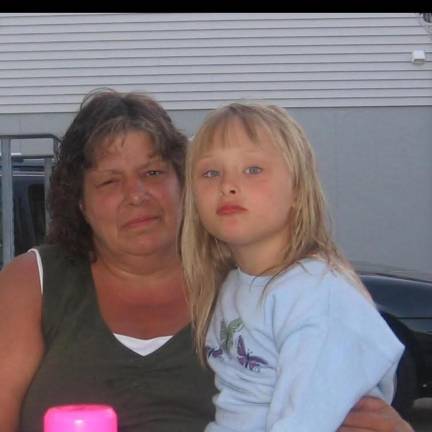
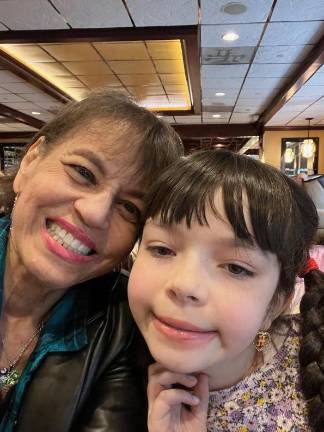
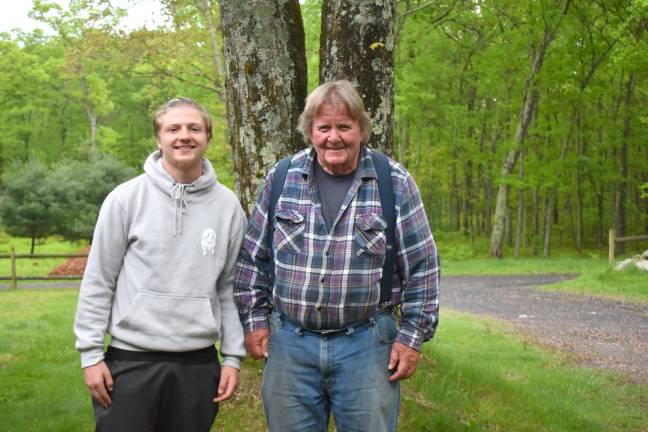
Wendy Nocar was 51 the day she got a surprise call from her son: she had a granddaughter, and the baby had been born addicted to heroin. “I’m going to try to get her,” Nocar recalled telling her son. “Why wouldn’t I?” She visited her granddaughter every day for the month the baby was in the NICU, then took her home and quit her job to take care of her.
Lisa Johnson was in her 40s when she got the call from the Department of Social Services. Her son’s struggle with drugs – which would lead to an early death – was getting out of hand. Could she take in her baby granddaughter while teaching full-time and raising her own teenage daughter?
Ruth Barbosa called the Administration for Children’s Services repeatedly to tell them that her baby grandsons were being neglected by their parents, who struggled with drugs and mental illness, and she would take them. The removal finally happened, but it came right after Barbosa had lost her long-term social work job.
David Goggins’ 15-year-old daughter had been kicked out of private school for behavioral issues and moved back home; three months later she announced she was pregnant. After having the baby, she continued acting out and “running around,” taking her infant with her on what her parents saw as questionable outings, said Goggins. “It became apparent that if we were going to be taking care of her we should probably have legal custody.”
When Rick Lyon’s daughter – who’d struggled with drugs since she was 15 – and her partner ended up in jail, he and his wife took in their young grandchildren. For years the kids bounced back and forth between their parents, whose lives were marked by drugs and violence, and their grandparents. When their daughter got into a terrible car accident that led to yet another relapse, the Lyons adopted their grandkids for good.
Paula McLaughlin was widowed and dating a nice man when the call came in the middle of the night. Her son, an alcoholic at the time, had been involved in a domestic issue. Her daughter-in-law told McLaughlin she needed to come get her grandson.
“So what do you do? You go get your grandson,” said McLaughlin.
These local grandparents are among the 2.1 million grandparents who live with and have primary responsibility for their grandkids nationwide, most commonly in households headed by the grandmother only. Each grandparent mentioned above ended up raising their grandchild to adulthood or is still in the process.
Almost all the grandfamilies interviewed for this story cited the parents’ substance abuse as the primary reason for the breakup of the nuclear family; three grandmothers had lost a child to drugs. About half the interviewees also mentioned mental health struggles.
‘I was better off with my grandma’
Studies show that children raised by relatives do better than their peers in non-kin foster care. The past few years have seen a nationwide push to place kids with relatives when their parents can’t care for them.
“I was better off with my grandma,” said Summer Williamson Nocar, 22, stepping out for a break from her job as a cook at the Village Diner in Milford, Pa. Summer lives with her grandmother, Wendy Nocar – whom she calls Mom – in Port Jervis, N.Y., as she has all her life.
“My grandma gave me more than anyone ever gave me. She’s my everything. She likes to spot me so I don’t have to spend my own money,” said Summer. “When people call her my grandmother I’m like, no, that’s my mom.”
Born addicted to heroin, Summer didn’t talk until age three and struggles with ADHD, mild anxiety and compulsive disorder, said Wendy. She went on to study culinary arts at SUNY Sullivan and now works as a cook, with plans to open her own restaurant.
Summer likes to treat Wendy to meals out, pedicures and, hopefully, one day a trip to Hawaii. She worries about losing her only family – something Wendy worries about, too. “When I’m 40 she’ll be 90,” said Summer. “She’s literally the only person I have.”
Burdened by trauma
Babies and kids who arrive at their grandparents’ doorstep tend to carry some degree of trauma and a profound feeling of otherness.
“I love my grandparents, you know what I mean? But if you actually want to hear the truth, it might do some damage to your brain at times, just growing up, seeing Dad the way he was and when he passed away. Then my mom and she’d be all over the place, people beating on my mom, having to see that,” said Jacob Gigi, 20, of Matamoras.
Gigi has lived mostly with his grandparents, Rick and Denise Lyon, since he was about six, and he now works as a mechanic at AutoZone.
When he was eight or so, Jacob found his dad unresponsive after what would prove to be a fatal overdose. He still dreams about his father often. He remembers his parents’ friends being over at the house and locking him in his room until he wet himself. He’s been diagnosed with schizophrenia, for which he’s on medication.
He was a multi-sport athlete through high school, playing football, lacrosse and wrestling, hitting the weights. Sometimes kids at school would fight him because they heard he didn’t have a father.
“When you have a mother who did drugs when you were in her stomach and your dad being all weird, all that sh** does bring you down,” said Gigi. “I feel like I’m different from others, definitely, you know what I mean?”
The day grandfather and grandson spoke to this reporter, they were expecting Jacob’s biological mother to return home from Virginia, where she’d been in jail, after an absence of about seven years.
Would his mother live with them? The two men shrugged in unison.
“I don’t know,” said Lyon. “That’s what I’m shooting for, and if she’s on track, it would be a blessing.”
Not enough support
Taking in a child from a troubled situation at a moment’s notice can be a huge financial and emotional undertaking, yet grandparents don’t get much support – financial, legal or social.
In describing the impact of her arrival on her grandmother’s life, Summer put it like this: “I just got thrown at her. She didn’t know it was for the rest of her life.”
Gerard Wallace, retired director of the New York State Kinship Navigator, has spent much of his career advocating for kinship families.
“It’s a very, very fraught caregiving situation,” Wallace said, “despite the fact that the stability offered by kinship families is the biggest balm to children who have been abused and neglected in America today.”
For Ruth Barbosa of Newburgh, N.Y., who took in her two young grandsons, “it was overwhelming because on top of them coming in with their behaviors – they were already traumatized, crying a lot – from the beginning I was going through my own stuff, my emotions toward my son. I feel like here I am once again cleaning up your mess. I was very angry with him. I resented him for that.
“Even though I know how to bring that all together, for about three months I even felt like I was going to have a nervous breakdown. Even though I know I had great skills to manage it all, for a moment there those skills went out the window.”
In a May 18 feature on grandfamilies in the New York Times Magazine, the author describes the stress her parents endured when they took in her sister’s four young kids. “While all babies cry, traumatized babies cry a lot, and these babies wailed at the slightest provocation,” she said. Her parents wore chain-saw earmuffs to muffle the hysterics while giving the kids baths.
Then there’s the money, or lack thereof. The majority of grandparent caregivers are in informal arrangements outside of the foster care system, either because they were never informed foster care was an option or because they prefer to navigate the situation on their own terms – which means they get drastically less financial help.
“Essentially, this is child welfare on the cheap,” Wallace said. “Nothing wrong with that, but the shortchanging of these caregivers is really upsetting because you see what they’re going through trying to provide for a child.
“They come into these homes and they’re a mess. Nobody gives a child to somebody else because of a good circumstance. It’s either death, incarceration, mental illness, drug addiction, abuse, neglect. The best one in the whole group is if a parent died – that’s still trauma.”
The grandparents interviewed echoed the fact that the financial aid basically covered groceries and amounted to a fraction of the cost of raising a child, particularly one with special needs.
“The federal legislation that encourages familial placements really has it right in terms of the outcomes,” said Caitlin O’Brien, program manager of the Relatives as Parents Program, hosted by Cornell Cooperative Extension. “What they don’t have right is having enough support for those families to really to be able to do it. I’m sure some folks have to turn it down, because they’re like, I just don’t know how I would be able to make it work for the kids, you know, to provide them a good home, food, clothes and all that stuff.”
When Ruth Barbosa, of Newburgh, first took in her grandsons, “when I would look at it by the day I’d laugh, maybe $18 a day for each of them... and that’s supposed to cover everything. I spend more than that on Christmas.”
When Barbosa’s son returned from prison and came to live with her and his sons, and in one of his moods accused his mother of adopting his boys for the money – she could only laugh.
“They don’t give you enough money. Nobody’s going to get rich on that subsidy they give you,” she said.
She paid for her grandsons’ day-to-day needs out of her own pocket and put the state aid toward buying her home. “I decided to have a house so that the kids, if something happens to me, would have something to fall back on.”
No help at all
Sometimes grandparent caregivers get no help at all, because they’re ineligible, they don’t know they’re entitled to anything, or they’re unwilling to report their own kid to the authorities.
Jean, a widowed 85-year-old grandmother in West Milford, N.J., who asked that her last name not be used to protect her family’s privacy, took in her daughter and grandchildren 16 years ago after an issue with their father involving New Jersey’s child protection services.
A retired flight attendant who relies on Social Security, Jean helped raise her grandkids: driving them around, helping them get ready for school, helping with homework, comforting them when they’re upset, taking them to the movies.
They have grown up under her roof, but because the kids’ mom lives there, too, “I’m not really considered any kind of caregiver by the state,” she said.
With three extra mouths to feed, Jean has had to cut back on expenses she never had to think twice about, like going out to eat. She doesn’t know whether her grandkids will be able to afford college. “I’m hoping they will, but maybe a community college or maybe even a trade school – that might be best. We’re hoping the older one might get a scholarship.”
Wendy Nocar, of Port Jervis, decided early on that she did not want to raise her granddaughter in the foster care system. “At that time it just seemed they were so intensely in my life that I went for private custody,” she said.
Nocar had been getting a caregiver’s grant of about $400 a month during her granddaughter’s early years. Then Nocar adopted Summer at age seven – “and lost everything. I didn’t know that was going to happen. But you know, you adjust.”
Meanwhile, Nocar’s professional prospects as an engineer – designing sheet metal components or containers for the food service industry – had evaporated during the years she spent raising Summer single-handedly. She had taken a short hiatus from work to care for Summer until she was old enough for daycare, and then Nocar had to turn down a promotion to management at Home Depot because she had no one to help with childcare.
When the recession hit and Nocar found herself out of a job, she was scared she might lose her granddaughter. “Where was I going to work after that, because I was older and, you know, who’s going to hire me in engineering?”
So she adjusted, again, and opened a daycare. At 73, she’s still caring for people with special needs as a respite worker.
“I sacrificed a lot in my life just to have her, you know, career-wise. I could have gone far, but I didn’t. But I figured out ways to make money just to keep going.”
‘It was constant running’
Lisa Johnson, of Middletown, N.Y., had already raised her first grandchild, Angel, to age 16 when she opened her door once again to her son’s children. The “three littles,” all born methadone-addicted and all special needs, had been bouncing around foster care placements.
“Every one of them had to go through withdrawal. The little guy had it the worst. He was in NICU in the city for a month, and when he came out, they went to a rehab” where the newborn struggled to overcome a lung infection.
When they arrived at her home, all three littles needed dental surgery and therapy, and this time, Johnson knew enough to get family therapy, too.
For a while Johnson, who was still teaching middle school foreign language part-time, was shuttling her four grandkids between seven different therapists. Between times she was also going to Narcotics Anonymous, Al-Anon and Alateen meetings, trying to support her son as he bounced in and out of rehabs.
“I had to be super organized. I literally remember laying out their clothes for the week on top of a dresser: five outfits for each kid. Shopping every Friday before I pick them up for the week ahead. Cooking on the weekends so that I’d have meals prepared for when, you know, we’d get in the door. And then there were visits from DSS, you know, visitations with the parents coming in for the weekend: going to a hotel, getting the kids packed up every weekend to go to the hotel, and picking them up. And they all wanted to get groceries for the hotel. It was just constant running.
“I’ve been through all of this and I’m not on medication – I should be,” Johnson laughed.
Keeping the family together
But for all the stress, Johnson made sure there was as much joy. “We took her everywhere, cruises, Europe, Disney,” said Johnson, of raising Angel.
Every December she makes memory books for her grandkids, including photos of her son, who died in the hospital around age 40 from complications related to his drug use and diabetes. “I put in pictures of Mom and Dad, cousins, other family members, kind of keeps that alive with them. That’s my way of leaving a legacy for them.
“My goal is that I really want to keep all them connected – connected and bonded,” Johnson added.
When the three littles left Johnson, they returned to their mom, who was with an abusive boyfriend, Johnson said. Now 7, 10 and 11, they are back in foster care.
“They needed to be placed again, but I got sick and I can’t. I can’t take all three – I could never choose one. Goodness gracious,” she said, laughing at the impossibility of that thought.
But Johnson remains very involved in all her grandkids’ lives. “I now can really appreciate my grandkids. It’s wonderful to see them doing things for me now. My grandson put up Christmas lights. They’re baking and cooking now with me. They’ll help me, laundry, bring it upstairs, bringing things in from the car. I’m so appreciative of them,” she said.
Her philosophy, she explained: “I catch them doing something good.”
Success studded with heartbreak
Faith Goggins, 22, of Middletown, who was born to a 16-year-old mother and 19-year-old father and raised by her Nana and Pop, has followed in her grandfather’s footsteps and gotten her master’s in social work. She wants to work with children.
Faith’s biological mom, now a practical nurse, is a regular presence in Faith’s life, and has two more kids. “We became very close and still are,” said David Goggins, of his daughter, who was an immense help when his wife’s health was declining. “You know, she’s come a long way. My nature is to forgive, anyway.”
Growing up, Faith felt different from other kids, but eventually came to realize: “It’s okay to feel different. I mean, we’re all different, even if you’re raised by mom and dad. It shouldn’t be a negative thing, it shouldn’t harm your persona,” she said.
“I kind of had that battle for a while – I don’t have a normal life. Why can’t I have a normal life?” she said. But as she got older, “I started understanding why my parents couldn’t be together and why it was actually better that I lived with my grandparents. Looking back now, I am so glad my life happened the way it did.”